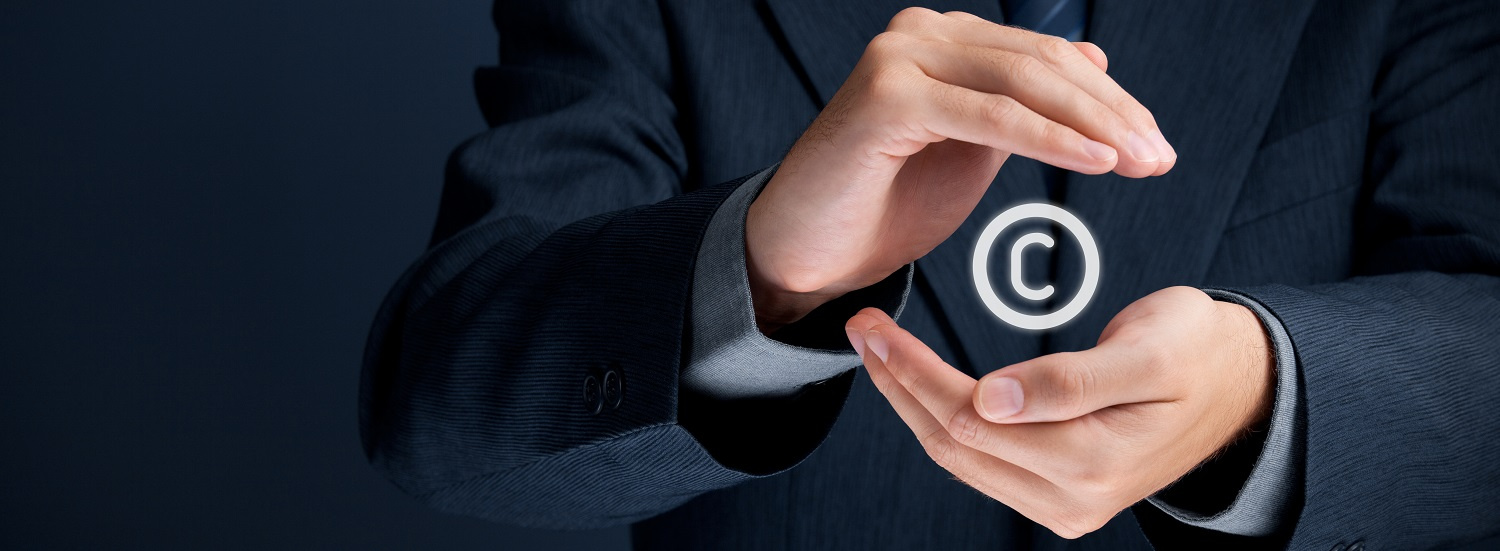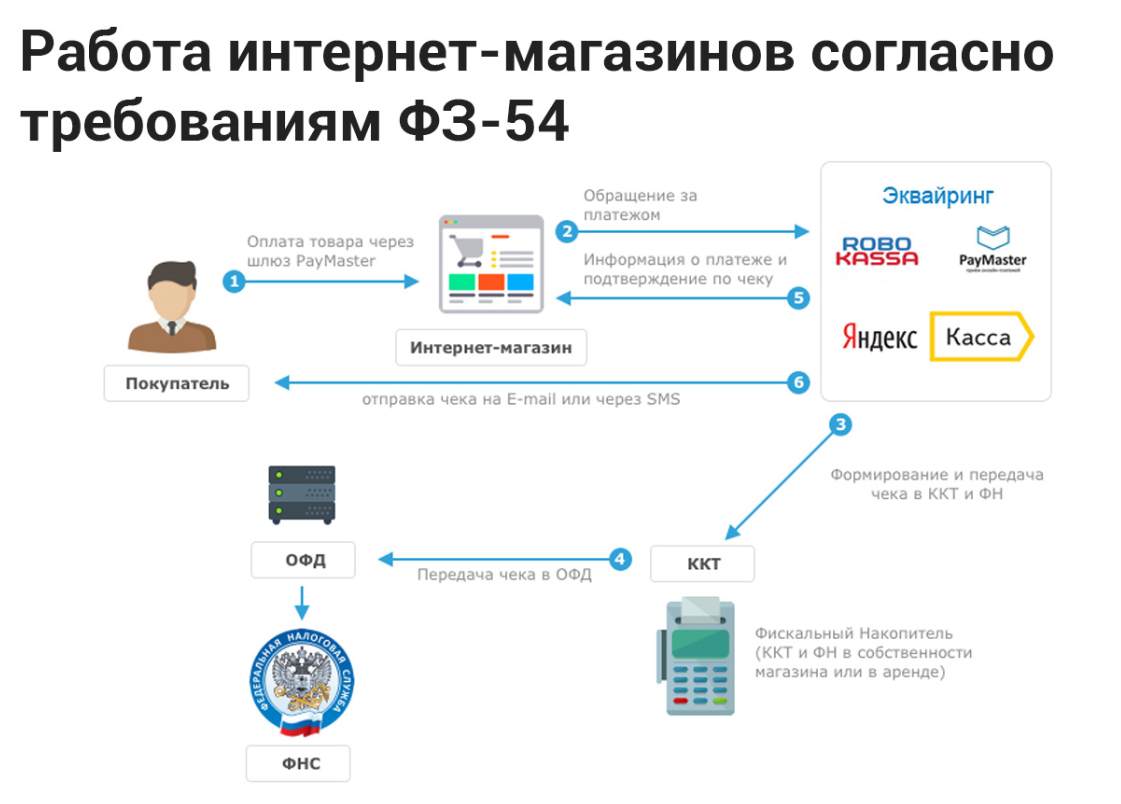What do site owners need to know in order not to lose their business?

Business activities on the Internet are increasingly tightly regulated by the state. For example, from July 1, 2017, fines for illegal processing of personal data on the website increased and a new procedure for applying CCP was introduced.
We have compiled a checklist for each of the “painful” business issues on the Internet : what should be remembered when registering a hosting, domain, purchasing rights to a site? How to respect intellectual property rights on the Internet? What to do if you copied content or design from your site? How to avoid fines of up to 300,000 rubles for violation of the FZ-152 and 54-FZ?
')
What is worth remembering when purchasing hosting
The contract for hosting is for a period of one month or more, payment for hosting must be paid regularly, as hosting providers automatically block unpaid sites and all services associated with this.
Contracts at hosters, as a rule, are “standard”, they will not be edited for the requests of your lawyer. Invoices are sent automatically to the mail specified at the conclusion of the contract.
Top 5 Questions for Your Hosting Provider
- What is the contact mail specified in the contract? When entering into an agreement, specify several mailboxes to receive notifications about payments, technical works, etc. - it will minimize non-payment due to the “human factor” (for example, vacation / hospital responsible specialist at the time of payment).
- Who is the contract? It is better to place it not on an individual, for example, a system administrator or IT-specialist, but on a company.
- Are there licenses for Telematics and Data Transmission? The absence of these documents is unacceptable.
- Where is the hosting data center? If you plan to work in Russia, then the data center should be located in the territory of the Russian Federation.
- Is there access to the hosting control panel? If you have not previously been sent access (for example, due to the fault of the developers of the site), then request them and organize the proper storage of account information. Access is always three lines of data: host address, login and password.
Domain: part of the company's intangible asset
A domain name can be a transaction object. Its registration is carried out after the conclusion of the relevant agreement with the company-registrar. Settlement of controversial issues is carried out within the framework of Russian legislation.
- Domain names .ru, .com, .net, etc. - These are first level domains, they are not sold in the usual way. Such sales are planned to begin only 2020.
- Second-level domain names are mercedes.com, sk.ru, web-canape.ru, yandex.ru, google.com, etc.
- When buying a second-level domain, you acquire not one domain, but a whole cluster: www.vash-domen.ru , vash-domen.ru, test.vash-domen.ru, test2.vash-domen.ru, etc.
Domain rights give:
- the ability to connect domain corporate mail;
- create subdomains of the third and fourth level;
- host sites on your domain and its subdomains;
- sell or donate a domain name.
The domain name is not bought “forever” - it is paid annually, sometimes the renewal period can be extended to 3 years. If the domain name is not renewed on time, then within a day all your websites, mailboxes and other services associated with domain names will stop working.
What is worth remembering when buying a domain
- Hosting rights are not related to domain or site rights.
- Even if the domain is “given as a gift” when buying a hosting, specify who will own the rights to it, who is the registrar and what will happen if you decide to move to another hosting company
- Make sure the domain is legally owned by your organization.
- Pay for renewals in a timely manner.
- As the administrator's contact mailbox, specify an e-mail not associated with the domain name.
- Pay attention to the domain name, it should not duplicate or contain another brand in its name. Since its owner can have such a domain sue or ban its use at any time.
Site rights
A site can be created using one of the following schemes:
- constructor - wix, ucoz, tilda, etc. - you own only the content of the site that you placed on the template;
- Website based on a template on a free CMS, such as WordPress, Drupal, Joomla, etc. - you own the content, the version of the CMS with modifications;
- site with an individual design on a paid or commercial CMS - you own a license, design rights, rights to software modules, content.
What is worth remembering when ordering a website
- Be sure to enter into a development contract, even if you work with a freelancer or create a site through an employee of your company
- When ordering a website, specify the question of future improvements, guarantees and technical support.
- Fix the transfer of rights to design, content, CMS or software improvements
- Appoint a responsible person for control over the information that will be published on the site.
What are the risks
- No contract for the site - no your rights to it. Do not be surprised if you see a complete copy of your project.
- Domain and hosting purchased by your employee - there is a risk of blackmail and demands to redeem these assets from him
- An unpaid domain name is instantly redeemed, and you completely lose the right to it.
- With the loss of a domain name, you lose your site, corporate email and some of your reputation.
What you need to remember?
- Do not use photos and texts taken without the consent of their owners.
- Graphic materials must be prepared independently or purchased on specialized exchanges.
- You should find out in advance what rights you have to the CMS license on which the site is developed
- Make sure that all copyrights to use your site’s graphic template are observed.

Imagine you developed a unique graphic material, wrote interesting texts, programmed services, put it all on your site, and after a couple of days you see that this information is copied to other sites without any mention of the original source.
How to defend your rights
- We put on the site sign Copyright
- We create a section in which we describe the rules for using materials from your site.
- When a copy is found, we write an official request to the owners of the site on a letterhead.
- We write requests for copyright infringement in the hosting service or designer that hosts the site, with a request to block the project
- We write requests to Google
- All letters are supported by evidence
- If it doesn't help, we go to court.

Copyright Infringement Notification
What else can you do
- Register the newly created texts in Yandex.Webmaster
- We put a software module to protect against copying texts
- We impose a watermark on the author's photo
- We add hidden links to texts that lead to your site.
When copying materials from our site is useful?
- If the copied texts and graphic materials contain a link to your site
- If you are promoting a new idea or technology, information about which it is advisable to distribute, as widely as possible
- If you add your texts to Yandex.Webmaster, their theft will be recorded, and the plagiarist site will fall under search sanctions
Work with personal data
Since July 1, 2017, fines for violating the law have increased. In the aggregate, the fine can be up to 300,000 rubles. The minimum fine increased from 10,000 rubles. up to 75,000 rubles.
Required
- Develop and place on the site a section with a privacy policy in which you describe what data is collected, who you are collecting, for what purpose, what percentage of responsibility you accept to store, protect and process this data
- The link to the section "Privacy Policy" should be present on all pages of the site.
- In all forms of data collection you need to add a tick "I give my consent to the processing of personal" and an active link to the privacy policy
- For the visitor who first opened the site, place a module with a warning that the site has systems for collecting information from the browser settings
- Place your website on hosting in Russia
- Designate responsible persons and develop a package of internal documents regulating the processing and protection of personal data
Desirable
- The data from the information collection forms should be recorded in the CMS site, and not sent to the e-mail
- Purchase an SSL certificate for a domain name and configure the site using a secure https protocol
54-: new procedure for applying CCP
From February 1, 2017, the cash register must send electronic versions of checks to the operator of fiscal data - the new rules are set out in 54-FZ Article 2 Clause 2.
A legal entity or individual entrepreneur is obliged to purchase a fiscal drive, connect an on-line cash desk, enter into an agreement with the fiscal data operator and send checks in electronic form to the FTS through the fiscal data operator.

Scheme of online payment under the new law
- An order is formed on the site, which is transferred for payment.
- Payment takes place on the side of acquiring (robokassa, yandex-cash, payanyway, etc.)
- Acquiring transfers payment information to an online cash register that forms an electronic check.
- Electronic check confirmed by fiscal data operator.
- The confirmed check is recorded in the fiscal drive, sent to the buyer by e-mail and entered into the database of the operator of fiscal data
1 or 2 times a day, all electronic checks are uploaded to the tax inspectorate database.
What happens if you ignore the law?
- The fine for each paid, but not confirmed online check transaction - 10 000 rubles.
- Penalty - 10 000 rub., If the connected online-cash desk does not meet the standard
- Trading without an online ticket office - 30 000 rubles.
Whom the law does not concern until July 1, 2018?
- Those who had the right to work without cash registers
- Those who sell goods of national crafts and have the status of "folk craft"
- Sale of newspapers, magazines and other periodicals
- Implementation of religious objects
Want to know more?
On August 3, the seminar “The Internet and the law: what site owners need to know to avoid fines of up to 300,000 rubles” will be held in the Skolkovo coworking with the participation of experts in the field of jurisprudence and web development.
We invite managers of innovative and technology companies, startups, sales specialists, marketing specialists and IT specialists. Participation is free, register here >>
At the end of the seminar, the speakers will answer specific questions related to your business, comment on possible risks, give advice and recommendations.
Regards, WebCanape Company

Source: https://habr.com/ru/post/334524/
All Articles